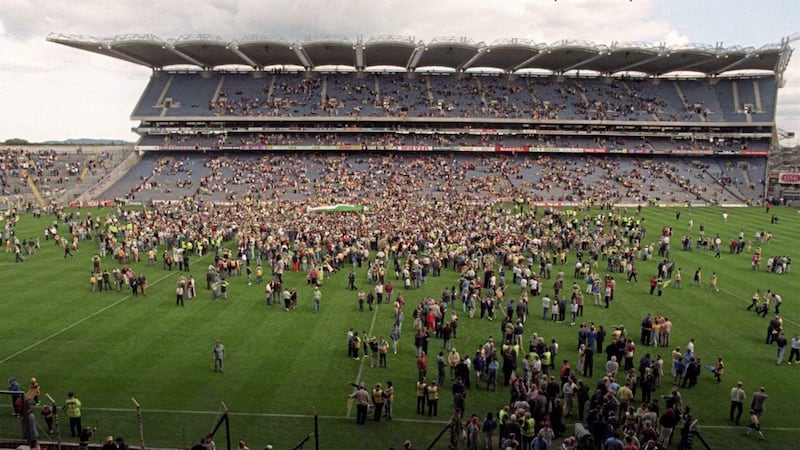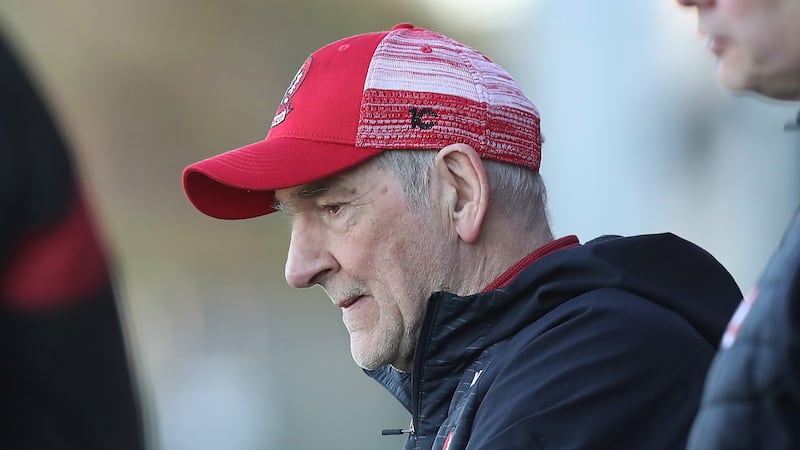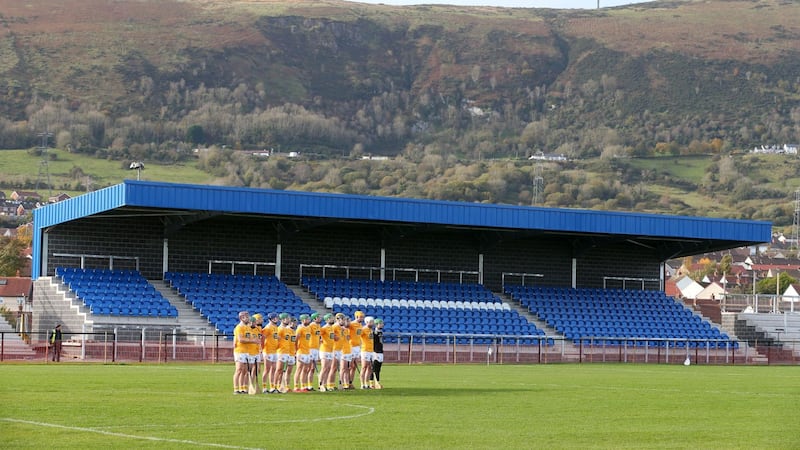AS the Clare and Offaly players shared a drink in the players’ lounge, they looked down on the Croke Park pitch to a sea of green, white and yellow jerseys.
Where an hour earlier the players had done battle, the Offaly supporters had taken it upon themselves to take a stand.
Anthony Daly recalled afterwards how Offaly star Jonny Pilkington stood with him, pints in hand, surveying the scene and said: ‘Would they ever go home?’
Clare had been three points up in the 1998 All-Ireland hurling semi-final when referee Jimmy Cooney blew the final whistle after 68 minutes.
The following morning, Michael Duignan was going down to buy the papers and decided he’d call in for a pint. His phone rang. It was the county secretary to tell him training was back on, that there was going to be a replay.
“The lads still say there’s no way I left the pint there. That will go to the grave with me. I’d the pint got…” he smiles.
It’s Offaly’s name on the roll of honour as 1998 All-Ireland champions. They hurled a storm in the replay and then beat Kilkenny to win their second title in five years.
What would have happened if their supporters hadn’t mobilised there and then to make a scene on the Croke Park pitch?
Duignan recalls that it wasn’t all as jovial and light as it was made appear. There were skirmishes to get past the stewards. His own father, “a very quiet man, got a bit enraged too and fought his way out there.”
Pilkington and Duignan could both have been sent off that day. The latter laughs that he should have been going to Mountjoy when the crowd was making its way down to the pitch.
Instead, he ended the year with an All-Ireland and an Allstar.
If those first 100-or-so hadn’t broken the barriers and waved furiously at those heading for the exits to turn around and join them, what is the legacy of that day?
What changes in the legacy of that Offaly team, and that Clare team too?
Offaly could have gone the boardroom route, protested through the week, fought their corner on the dark evenings behind doors nobody could see or hear through.
Would they have gotten their replay that way?
As a Derry man, it’s easy to say that the answer is categorically no.
If we didn’t have bad luck we’d have none at all.
Cavan won the 1997 Ulster title, thanks in part a wide ball from Raymond Cunningham that was given as a score. Derry were beaten by one point.
They opted not to contest the result of the match. Gerry Donnelly, Derry’s larger-than-life PRO at the time, said afterwards that “David O’Neill, who is a very quiet fellow, was absolutely insistent that it was three feet outside the right-hand post.”
Three feet was an understatement.
The exact same happened an Oak Leaf minor team in an Ulster final against Tyrone, while in the 2000 All-Ireland minor semi-final, Cork’s Kieran Murphy was allowed to stay on despite having picked up two yellow cards.
Cork also won that game by a point.
There was no replay.
Derry lodged their protest in the midweek darkness of Croke Park’s empty corridors. It might as well never have been heard.
The shadows are a friend of power.
Look at the Newbridge Or Nowhere campaign that Kildare launched in the summer of 2018.
Drawn to host Mayo, Kildare had been asked to nominate a second venue for what should have been a home game. They refused.
On the Monday afternoon, the GAA announced that the game would be played in Croke Park as part of a double header with Cavan v Tyrone.
That evening, Kildare manager Cian O’Neill appeared on RTÉ’s Six One news.
“We’ll be in St Conleth’s Park, we’re gonna be togged out, we’re gonna be ready to go. That’s our home venue, we earned it by winning our last two matches on the road, and that’s not gonna be taken away from us.”
This was an unusually public show and even at that, it needed another two days of digging their heels in. But the storm had been whipped up and on the Wednesday, the GAA eventually decided it was better to cut their losses than face the prospect of Kildare not turning up.
The problem with abiding by democratic means is that they’re too civilised.
Across the water, we have seen in the last three weeks the success of people exercising their right to protest.
No amount of fan group discussions or angry calls to radio phone-ins or threatened boycotts would ever have stopped the European Super League in its tracks.
It needed a mass, united front led by some visible scenes that would make the authorities uncomfortable.
You can have all the engagement and discussion and talks you like, but in order to redress the power balance in favour of the little guy, there usually needs to be some form of action.
Not just the little guy, either. Few protests were more impactful than Kathrine Switzer using her initials to register for the Boston Marathon as its first female entrant.
They tried to rib the bib number off her. They tried to stop her finishing. Sexist attitudes deemed women too weak to run long distances.
It took a while for the change to occur, but Switzer’s actions were the beginning of a movement.
Sixty years later, 12-year-old Belfast girl Emer McKee (coincidentally, a daughter of my wife’s cousin) last week ran a 5km race in just 16 minutes and 40 seconds. A world record time for someone her age.
All it takes for nothing to change is for people to accept what they’re given by authority.
Sometimes you have to make a bit of noise.
Sometimes you have to storm the Old Trafford pitch.
Sometimes you have to fight past the stewards and sit for an hour in Croke Park.
Sometimes you have to go on the Six One News.
Sometimes you just have to stand up and fight.
Only then does power listen.








